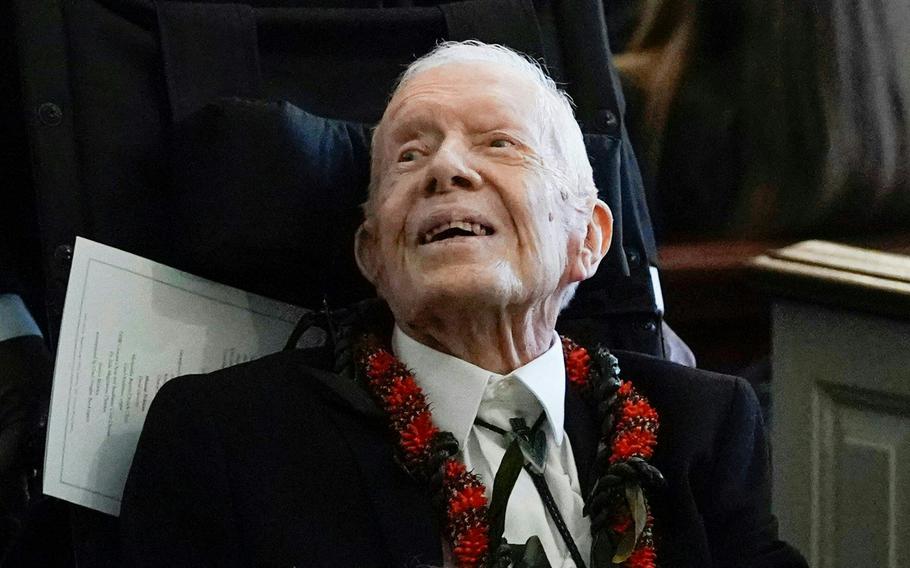Former President Jimmy Carter Passes Away at 100

Jimmy Carter, the Georgia peanut farmer whose unassuming nature belied his profound impact on American politics and global humanitarian efforts, passed away peacefully at his home in Plains, Georgia, on Sunday. The Carter Center confirmed his death, stating he had celebrated his 100th birthday in October, making him the longest-lived president in U.S. history.
His son, Chip Carter, called him a hero to all who value peace, human rights, and love. “My brothers, sister, and I shared him with the world through these beliefs. The world is our family because of the way he brought people together,” Chip said, urging others to honor Carter’s memory by embracing those values.
Carter is survived by his children, 11 grandchildren, and 14 great-grandchildren. His wife of 77 years, Rosalynn Carter, passed away on November 19, 2023, at age 96.

In February 2023, Carter began receiving hospice care, choosing to spend his final days surrounded by family after a series of hospital stays. Known for his honesty and humility, Carter entered the White House at 52, narrowly defeating Gerald Ford in the post-Watergate era.
His presidency faced severe challenges, including high inflation, oil shortages, and the Iran hostage crisis. Despite brokering the historic Camp David Accords between Egypt and Israel and transferring control of the Panama Canal to Panama, Carter’s term was marred by economic struggles and a drawn-out hostage crisis that ultimately cost him re-election to Ronald Reagan in 1980.
Carter often argued that his focus on human rights and the release of the hostages alive should be viewed as successes, but many critics at the time labeled his presidency a failure.

However, Carter’s post-presidency transformed his legacy. He devoted over 40 years to humanitarian work, co-founding the Carter Center with Rosalynn in Atlanta to champion peace, democracy, and human rights.
The center’s efforts in disease eradication and election monitoring earned global acclaim, and Carter himself was awarded the Nobel Peace Prize in 2002 for his unwavering commitment to peaceful conflict resolution and social development. His work with Habitat for Humanity further cemented his image as a tireless advocate for the underserved.
Born on October 1, 1924, in Plains, Georgia, Carter grew up in a family dedicated to public service. After graduating from the U.S. Naval Academy in 1946 and serving in the Navy, he returned home in 1953 following his father’s death to manage the family peanut farm.

He soon entered politics, winning a seat in the Georgia State Senate in 1962 and becoming governor in 1970. His progressive stance against racial discrimination and poverty set the stage for his presidential campaign as a Washington outsider.
Carter’s longevity was remarkable, surviving numerous health challenges, including melanoma that spread to his liver and brain. Even into his 90s, he continued teaching Sunday school in Plains, drawing visitors from across the country.
Despite the challenges he faced as president, historians have increasingly recognized Carter’s contributions, particularly in human rights and diplomacy. His life of humility and service leaves a legacy of unwavering dedication to humanity.





